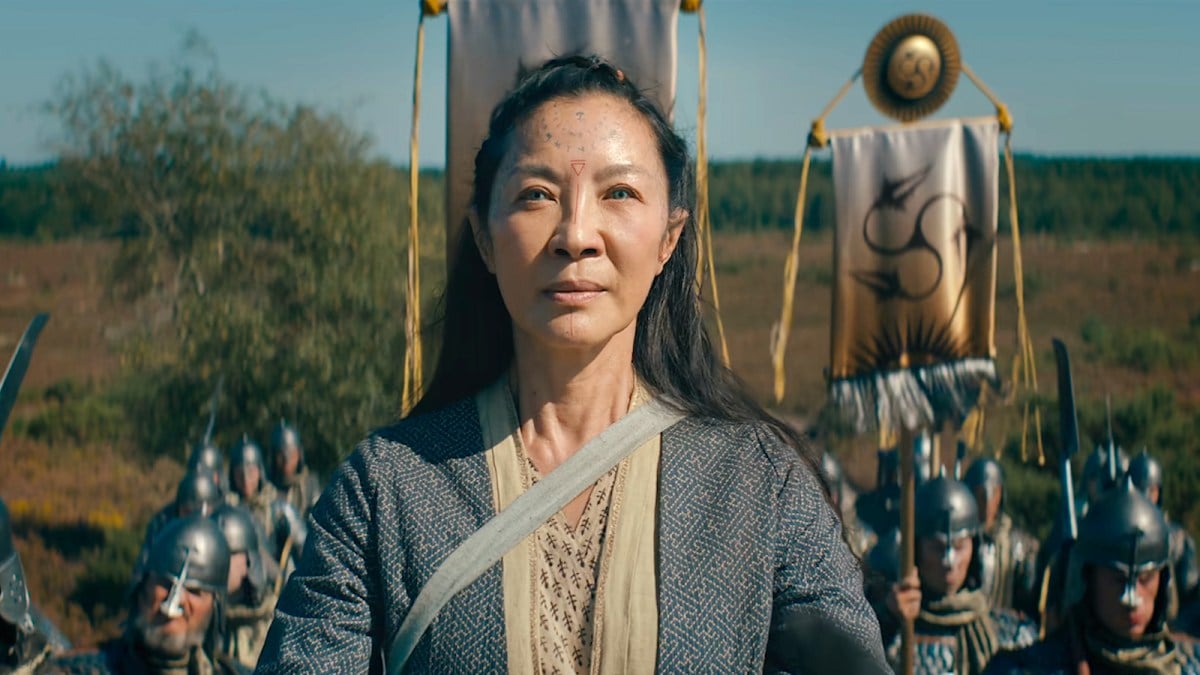Netflix’s The Witcher: Blood Origin, a prequel set 1,200 years before the events of The Witcher, was first announced back in 2020. Promoted as a six-part miniseries, the show promised a lore-based deep dive into the fateful events known as the Conjunction of the Spheres and an explanation as to how Geralt of Rivia, Ciri, and all the inhabitants of The Continent got to where they are when we meet them in The Witcher.
Most popular fantasy shows don’t get a prequel while its source material is still in the thick of airing (see also: House of the Dragon and The Lord of the Rings: The Rings of Power), but not The Witcher. Just ahead of the show’s third season, The Witcher: Blood Origin will premiere on Netflix with a whole new cast, storyline, and, contrary to what was originally proposed, two less episodes than initially promised.
The hype around Blood Origin has been relatively tame compared to its parent show, but it did catch several headlines earlier this summer. News broke that the showrunners were scrapping two entire episodes and bringing in a character from The Witcher to voice the lead narrator. What exactly happened, and does it spell out bad news for the show? Here’s what the show’s creator said about the topic.
Why did The Witcher: Blood Origin cut out two of its episodes?
Those who’ve read The Witcher novels by Andrzej Sapkowski are well aware of the ramifications caused by the Conjunction of the Spheres. That being said, the author never actually wrote about the event itself nor was it fully explained. We know the realms collided and caused monsters and humans to infiltrate The Continent where the Elder Races of elves, gnomes, and dwarfs had already resided. As a result, the elven race was pushed to the brink of extinction, and it’s that very plot pot Declan de Barra, the creator of Blood Origin wanted to explore when he proposed the idea of a prequel. His main goal was always to tell a story in a succinct and effective way. He never wanted it to feel like “we’re just stringing the audience along to have an episode. It always had to feel logical and right from a natural storytelling point of view,” according to Collider. For that reason, de Barra decided to scrap two entire episodes even after they were already filmed. His explanation was so that the show felt like “a punch in the face, so that you can’t take your eyes off of it.”
The decision “happened originally,” he said, and was borne out of watching the footage and brainstorming how to make what they had even better. The result, he explains, feels much more like a “two-part movie.”
Sure, the initial news hit like a haymaker and felt like a forecast for failure, but hearing de Barra’s explanation, it sounds like the end result will be a much tighter story. Hopefully, it will provide a clean explanation of a huge part of The Witcher‘s lore that’s never been explored to such degree.
The Conjunction of the Spheres will officially unfold when The Witcher: Blood Origin airs on Netflix on Christmas Day, Dec. 25.

